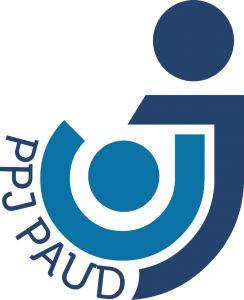Implementasi Sekolah Ramah Anak di TK YKK 1 Bangkalan
DOI:
https://doi.org/10.30736/jce.v7i1.1224Keywords:
Lembaga PAUD, Anak Usia Dini, Sekolah Ramah Anak,Abstract
Lembaga PAUD merupakan tempat yang seyogyanya menyediakan fasilitas pada peserta didi sebagai bentuk pengembangkan potensi-potensi yang dimiliki, sehingga lembaga PAUD menjadi tempat yang dapat menjamin dan memenuhi hak anak. Penelitian ini bertujuan untuk mengetahui merek indikator sekolah ramah anak di TK YKK 1 Bangkalan. Penelitian ini menggunakan jenis penelitian kualitatif studi kasus. Pengumpulan data dilakukan melalui observasi, wawancara, dan dokumentasi. Analisis data menggunakan konsep Miles dan Huberman yaitu dengan reduksi data, penyajian data, dan verifikasi data. Untuk keabsahan data penelitian ini menggunakan triangulasi sumber dan teknik.Hasil penelitian menunjukkan bahwa TK YKK 1 Bangkalan sudah memenuhi kriteria kriteria sekolah ramah anak karena memiliki enam faktor yang merupakan indikator sekolah ramah anak yakni 1) mencibir kebijakan ramah anak 2) Pelaksanaan kurikulum sekolah ramah anak 3) Pendidik dan tenaga kependidikan 4) Pemenuhan sarana dan prasarana ramah anak 5) Partisipasi anak 6) Partisipasi orang tua. Kesimpulan dari penelitian ini untuk mewujudkan pembelajaran lingkungan yang mendukung perkembangan peserta didik, pendidik disarankan menerapkan program sekolah ramah anak.
References
Kementerian PPPA. (2015). Panduan Sekolah Ramah Anak Deputi Tumbuh Kembang Anak. Kementerian Peberdayaan Perempuan Dan Perlindungan Anak, 42.
Kutsiyyah. (2018). Peran Lembaga PAUD Bagi Kesiapan Siswa Untuk Memasuki Sekolah Dasar. Kariman, 06, 85–98.
Muitasari, S. (2020). Implementasi Program Sekolah Ramah Anak. 10(April), 19–26.
Sari, P. W. (2021). Implementasi Sekolah Ramah Anak di PAUD Ari Wulan Sepakung Tahun Pelajaran 2020/2021. http://e-repository.perpus.iainsalatiga.ac.id/id/eprint/11226
Sugiyono. 2014. Memahami Penelitian Kualitatif. CV ALFABETA: Bandung.
Undang-Undang No 23 Tahun 2002 Tentang Sistem Pendidikan Nasional.
Undang-Undang No 20 Tahun 2003 Tentang Sistem Pendidikan Nasional.
Downloads
Additional Files
Published
How to Cite
Issue
Section
License
Please find the rights and licenses in JCE (Journal of Childhood Education). By submitting the article/manuscript of the article, the author(s) agree with this policy. No specific document sign-off is required.
1. License
Use of articles will be governed by the Creative Commons Attribution - ShareAlike license as currently displayed on Creative Commons Attribution-ShareAlike 4.0 International License.
2. Author(s)' Warranties
The author warrants that the article is original, written by stated author(s), has not been published before, contains no unlawful statements, does not infringe the rights of others, is subject to copyright that is vested exclusively in the author and free of any third party rights, and that any necessary written permissions to quote from other sources have been obtained by the author(s).
3. User Rights
JCE (Journal of Childhood Education)'s spirit is to disseminate articles published are as free as possible but there is a little payment for publication. Under the Creative Commons license, JCE (Journal of Childhood Education) permits users to copy, distribute, display, and perform the work for commercial purposes. Users will also need to attribute authors and JCE (Journal of Childhood Education) on distributing works in the journal and other media of publications.
4. Co-Authorship
If the article was jointly prepared by more than one author, any authors submitting the manuscript warrants that he/she has been authorized by all co-authors to be agreed on this copyright and license notice (agreement) on their behalf, and agrees to inform his/her co-authors of the terms of this policy. JCE (Journal of Childhood Education) will not be held liable for anything that may arise due to the author(s) internal dispute. JCE (Journal of Childhood Education) will only communicate with the corresponding author.
5. Miscellaneous
JCE (Journal of Childhood Education) will publish the article (or have it published) in the journal if the article’s editorial process is successfully completed. JCE (Journal of Childhood Education)'s editors may modify the article to a style of punctuation, spelling, capitalization, referencing and usage that deems appropriate. The author acknowledges that the article may be published so that it will be publicly accessible and such access will be free of charge for the readers as mentioned in point 3.
JCE (Journal of Childhood Education) by Universitas Islam Lamongan is licensed under a Creative Commons Attribution-ShareAlike 4.0 International License.Based on a work at http://journalfai.unisla.ac.id/index.php/jce.












